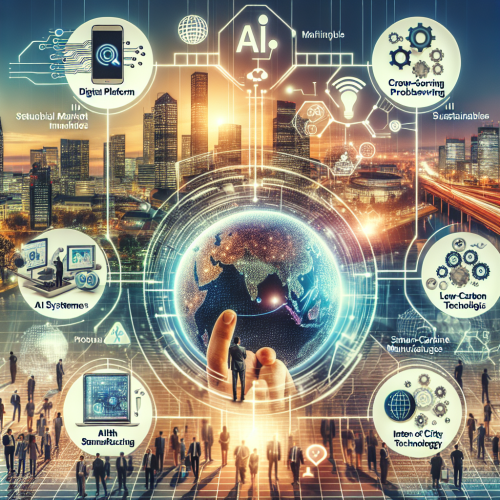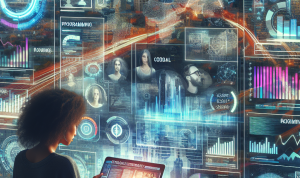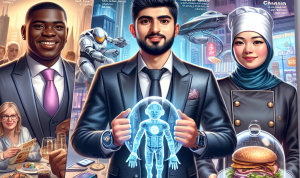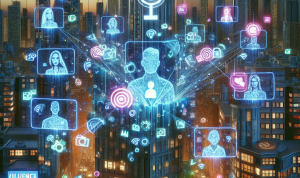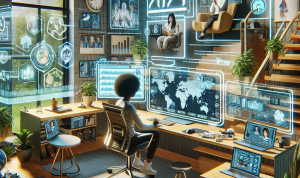Business Models – I don’t know about you, but I’ve always been fascinated by how certain business models just take off and leave others in the dust. I mean, take a look at the tech giants today. A few years ago, it seemed impossible that companies like Uber or Airbnb would change the way we live, work, and play. But here we are. Now, we’re on the brink of another revolution. So, let me share with you five business models I believe are going to totally disrupt industries in 2025—and probably change the way we think about business.
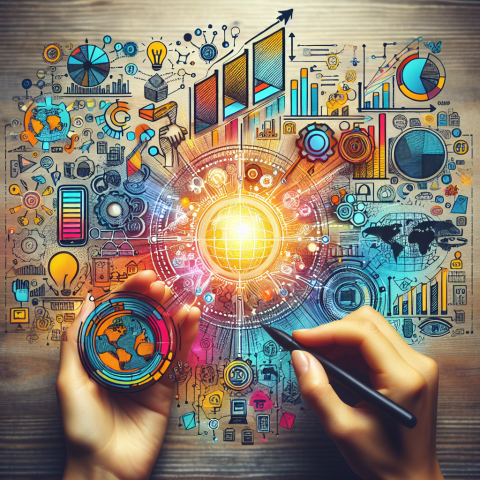
5 Business Models That Will Disrupt Industries in 2025
1. Subscription-Based Everything
Look, I get it, the idea of subscriptions is nothing new. We’ve all seen the rise of Netflix, Spotify, and a thousand other subscription services, but what’s coming next is on a whole new level. Subscription businesses have proven their power in almost every vertical, from entertainment to food delivery. But what about physical goods? The truth is, subscription-based businesses are moving from niche to mainstream, and they’re taking over industries you’d never expect.
For example, did you know that there are now subscription boxes for everything from books to beauty products, and even socks? I recently signed up for a monthly box of eco-friendly cleaning products (yes, that’s a thing) and it’s been a game-changer. What makes these models so disruptive is that they tap into that “convenience economy” we’re all so addicted to. If a business can make something easy, automatic, and tailored to my preferences, I’m all in.
What’s more disruptive, though, is when you apply the subscription model to services like healthcare or professional development. Imagine paying a monthly fee to have access to a personal trainer who curates a workout plan just for you or having a subscription to a network of freelance lawyers or accountants. These aren’t pipe dreams. They’re happening right now and could explode in the next couple of years.
2. AI-Driven Personalization
AI is one of those buzzwords we hear all the time, but the real game-changer is in how businesses are using AI to personalize experiences at scale. You see, personalization isn’t just about recommending products on a shopping website anymore. In 2025, businesses will be using AI to analyze our behavior, preferences, and even our emotions, all in real-time.
I experienced this first-hand the other day while browsing an online clothing store. I’ve been searching for a new jacket, and when I opened the website, it greeted me with personalized recommendations that felt almost too on point. The best part? It wasn’t just a generic “you might like this.” The AI had tracked my browsing patterns, cross-referenced it with seasonal trends, and even threw in a few sustainable brands because it knew I care about the environment. It was like the website was reading my mind. It was spooky, but in a good way.
This ability to create an entirely personalized shopping experience will extend far beyond retail. In fact, I think we’ll see AI-driven platforms revolutionizing industries like education, entertainment, and even mental health. Think about personalized learning platforms where AI adjusts the curriculum based on your learning style and progress. Or even virtual health assistants that suggest diet, exercise, and mental wellness strategies tailored specifically to your needs. This kind of deep personalization will be the foundation for some of the most disruptive businesses of 2025.
3. Decentralized Finance (DeFi) and Blockchain
Okay, I admit it: I used to roll my eyes when people mentioned blockchain or cryptocurrency. It seemed like this overly complex, mysterious world that was never going to be relevant to my everyday life. But, after spending some time learning about decentralized finance (DeFi) and the broader blockchain ecosystem, I’ve realized just how much of a shake-up is on the horizon.
By 2025, I think we’ll see major financial institutions fully embracing decentralized technologies. DeFi platforms already allow people to lend, borrow, and trade cryptocurrencies without intermediaries like banks. What’s revolutionary is that anyone with an internet connection can get involved. I tried out a DeFi lending platform last year, and while it was a little intimidating at first, the fact that I could earn passive income on my crypto holdings without relying on a bank was eye-opening.
But it’s not just about finance. Blockchain has the potential to disrupt supply chains, real estate transactions, and even voting systems. Imagine buying a house and transferring ownership through a secure, transparent blockchain network instead of dealing with lawyers and paperwork. It’s all happening, and businesses that figure out how to tap into this tech will be the ones to watch in 2025.
4. The Gig Economy 2.0: Hyper-Specialized Freelancers
Freelancing has been on the rise for a while, but in 2025, we’re going to see a shift toward a more hyper-specialized gig economy. Instead of generalists doing a bit of everything (which is still common today), businesses will increasingly turn to freelancers who are deeply specialized in niche skills. Think about it: if you need a marketing strategy for a vegan skincare brand or a graphic designer who can create retro-futuristic typography, you’ll go straight to the freelancer who’s built a career around exactly that.
I’ve been using freelance platforms for years, and the difference between hiring a generalist versus a highly specialized expert is night and day. The specialized freelancer knows exactly what works and can hit the ground running without a huge learning curve. As more businesses realize this, we’ll see the rise of “boutique” freelancing agencies that offer extremely niche services.
What’s exciting is that these hyper-specialized freelancers will have the flexibility to work with multiple companies and collaborate across industries, resulting in unique, innovative business ideas. This business model is definitely one to watch.
5. Sustainability as a Business Model
I can’t tell you how many brands I’ve seen lately rebranding themselves as “sustainable” or “eco-friendly,” and while some of them are genuinely making strides, others are just jumping on the bandwagon. But here’s the thing: sustainability is no longer just a trend—it’s becoming a business model in and of itself.
By 2025, I believe we’ll see businesses that center their entire model around environmental and social impact. It’s not enough to just “sell” a green product anymore. We’ll see companies integrating sustainability into every part of their operations—sourcing, production, distribution, and even employee policies. One company I’ve been watching recently is a zero-waste beauty brand that not only produces eco-friendly packaging but also has a model for taking back used products for recycling. It’s a whole new approach to business that’s built on long-term value for the planet and the people.
Sustainability isn’t a trend anymore. It’s becoming a core business value. In fact, I think the most successful businesses of the future will be those that figure out how to create positive social and environmental change while still making a profit.
In conclusion, the business models I’ve shared here are not some far-off fantasy—they’re already happening and poised to reshape the industries they touch. As a consumer, I’ve already started to notice the ripples of these changes, and if you’re thinking about jumping into any of these trends as an entrepreneur or investor, you’ve got a front-row seat to the future. The next five years are going to be wild, and I’m personally excited to see who will be leading the charge.

